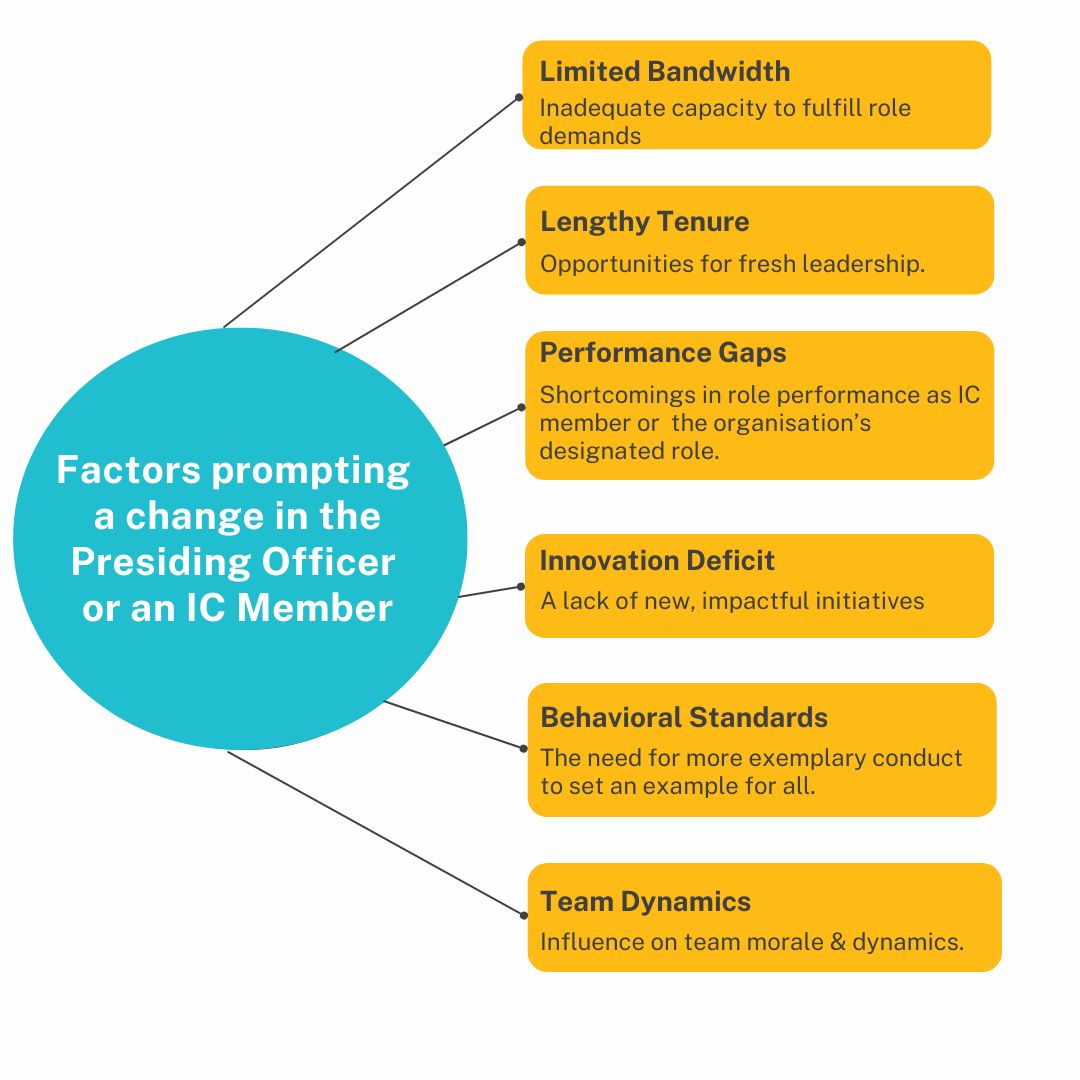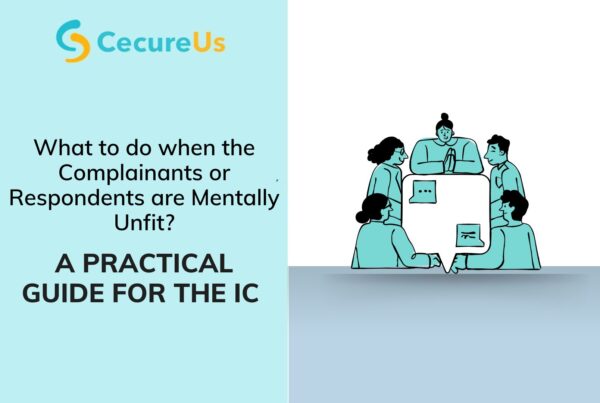 In organizations, particularly when dealing with sensitive issues such as workplace harassment, the Internal Committee (IC) and its leadership play a pivotal role in ensuring a safe and inclusive work environment. However, over time, certain factors may necessitate a change in the Presiding Officer or an IC member. Let’s explore some of the key reasons behind such transitions.
In organizations, particularly when dealing with sensitive issues such as workplace harassment, the Internal Committee (IC) and its leadership play a pivotal role in ensuring a safe and inclusive work environment. However, over time, certain factors may necessitate a change in the Presiding Officer or an IC member. Let’s explore some of the key reasons behind such transitions.

- Limited Bandwidth
One of the primary reasons for change can be the inability of the current member or officer to dedicate sufficient time and energy to their role. IC responsibilities require significant attention, from handling cases to raising awareness. If the individual is stretched too thin or unable to meet the demands, it may be time to bring in someone with the capacity to fulfill these obligations effectively.
- Lengthy Tenure
Long tenures can lead to stagnation in any role, including IC positions. Introducing fresh leadership can bring new perspectives, ideas, and energy to the committee, ensuring its continued effectiveness. A rotation policy may also help prevent complacency and enhance the overall vibrancy of the IC.
- Performance Gaps
Performance gaps in executing IC responsibilities can significantly impact the credibility and effectiveness of the committee. Whether it’s delays in case resolutions, lack of compliance with legal procedures, or insufficient engagement with stakeholders, addressing these gaps might require appointing a new member or officer.
- Innovation Deficit
An IC thrives on proactive initiatives—whether it’s spreading awareness about workplace harassment policies or conducting training sessions for employees. If there’s a lack of impactful new initiatives, it could indicate an innovation deficit within the committee, prompting the need for change.
- Behavioral Standards
The Presiding Officer and IC members serve as role models for organizational conduct. If an individual in this role is unable to uphold exemplary behavioral standards, it can erode trust and compromise the integrity of the committee. Organizations may need to reassess the suitability of such individuals in these critical roles.
- Team Dynamics
A healthy team dynamic is essential for any committee’s success. If an IC member’s behavior or approach negatively affects team morale and cohesion, it could hinder the committee’s functioning. To maintain a collaborative and effective IC, addressing such issues is vital.
Conclusion
The Presiding Officer and IC members carry immense responsibility in ensuring a safe, harassment-free workplace. Regular evaluations and necessary changes to these roles ensure the committee remains effective, unbiased, and equipped to handle challenges. By addressing the factors mentioned above, organizations can reinforce their commitment to workplace safety and create an environment where every employee feels respected and secure.
Please reach out to us for any queries on Need for Change in the Presiding Officer or an IC Member.
For more blogs and articles, visit our official website. Contact us for workshops and queries related to POSH, EAP (Employee Assistance Program) , Diversity and Inclusion and Code Of Conduct.




